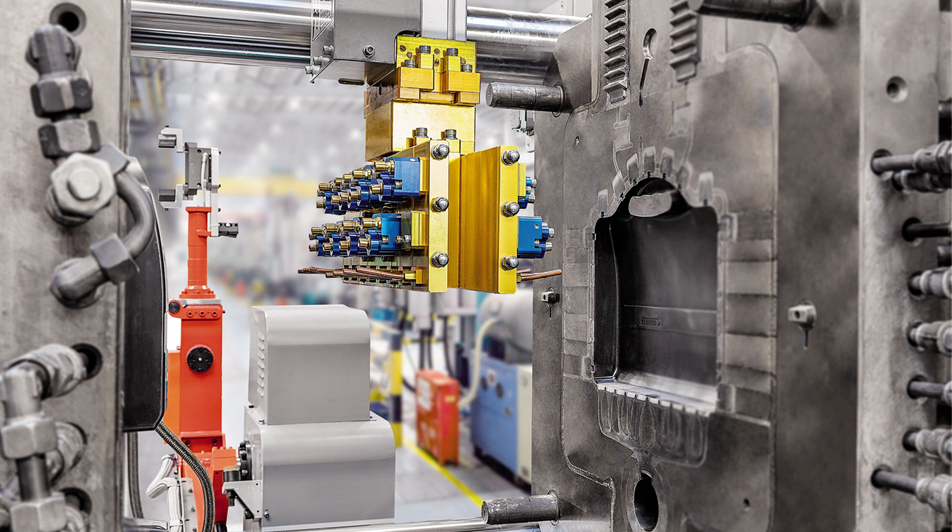Magnesium alloy is an alloy material with magnesium as the main component and doped with other metal elements (such as aluminum, zinc, manganese, silicon, etc.). Due to its unique physical and mechanical properties, magnesium alloys have been widely used in many fields. This article will introduce the characteristics, classification, manufacturing process and application of magnesium alloys in various industries.
Characteristics of Magnesium Alloys
1. Light weight and high strength: Magnesium is the lightest structural metal with a density of about 1.74 g/cm3, which is about one third lighter than aluminum, but has a higher specific strength (strength/weight ratio). This lightweight, high-strength property makes magnesium alloys very attractive in applications that require weight reduction.
2. Good thermal and electrical conductivity: Magnesium alloys have good thermal and electrical conductivity and are suitable for applications that require efficient heat dissipation.
3. Good machinability: Magnesium alloys are easy to machine, have low cutting resistance and high cutting speed, so they can be efficiently processed into complex parts during the manufacturing process.
4. Excellent anti-vibration and energy absorption performance: Magnesium alloys have good damping properties and can effectively reduce vibration and noise, so they are also widely used in applications that require energy absorption and vibration reduction.
5. Recyclability: Magnesium alloy waste is easy to recycle and reuse, which helps to conserve resources and protect the environment.
Classification of Magnesium Alloys
According to the main alloying elements, magnesium alloys are mainly divided into the following categories:
1. Mg-Al alloys: With aluminum as the main alloying element, it has good casting properties and mechanical properties, such as AZ91, AM60, etc.
2. Mg-Zn alloys: With zinc as the main alloying element, it has high strength and good corrosion resistance, such as ZK60, ZE41, etc.
3. Mg-Mn alloys: With manganese as the main alloying element, it is mainly used in the production of plates and profiles, such as AM503, etc.
4. Mg-rare earth alloys: With rare earth elements added, it has high temperature stability and good creep resistance, such as WE43, ZE10, etc.
Manufacturing process of magnesium alloy
1. Casting: including sand casting, metal mold casting, die casting and other processes. Die casting is the most commonly used manufacturing process for magnesium alloys, which is suitable for mass production of parts with complex shapes.
2. Forging: Forging of magnesium alloys can achieve fine grain structure and excellent mechanical properties, suitable for manufacturing high-strength and high-toughness parts.
3. Extrusion: Extrusion can produce various shapes of profiles and tubes, which are widely used in the aerospace and transportation industries.
4. Sheets and Foils: Magnesium alloy sheets and films can be produced by the rolling process, which are mainly used in the automotive industry and electronic products.
Application of Magnesium Alloys
1. Aerospace: The lightweight and high-strength properties of magnesium alloys make them widely used in aerospace applications, such as aircraft interior parts, brackets and structural parts.
2. Automotive industry: To reduce body weight and improve fuel efficiency, magnesium alloys are widely used in engine parts, transmission housings, steering wheels and other parts of automobiles.
3. Electronic products: The application of magnesium alloys in electronic products is mainly concentrated in the shells and structural parts of laptops, mobile phones, cameras and other products, with excellent heat dissipation performance and lightweight advantages.
4. Medical devices: Due to the good biocompatibility and degradability of magnesium alloys, they also have application prospects in the medical field, such as fracture fixation devices and implants.
5. Other fields: Magnesium alloys are also used in sports equipment, construction materials, defense industry and other fields, showing their wide application potential.
Future development trends
With the continuous advancement of science and technology, the performance and application prospects of magnesium alloys are constantly improving. Future development trends include
1. Research and development of high performance magnesium alloys: Improving the overall performance of magnesium alloys by optimizing alloying elements and developing new manufacturing processes.
2. Surface treatment technology: Improve the surface treatment technology of magnesium alloys to enhance their corrosion resistance and wear resistance.
3. Green manufacturing: Promote environmentally friendly magnesium alloy production processes to reduce energy consumption and pollutant emissions in the production process.
4. Expanding application areas: Explore the application of magnesium alloys in more emerging fields, such as new energy, intelligent manufacturing, etc.
In short, magnesium alloy has become an indispensable and important material in modern industry due to its light weight, high strength, good mechanical properties and recyclability. With the continuous development of technology, magnesium alloy will show its unique advantages and broad application prospects in more and more fields.
-

- Thixomolding parts & components cell phone middle board processed
-

- Magnesiumseoksesta valmistetut pyörän osat ja komponentit lasten työntöpyörään
-

- Thixomolding magnesium osat ja komponentit matkapuhelimen keskilevy
-

- Magnesium alloy die-casting Auto parts headlight frame
-

- OEM Die casting manufacturer produce magnesium alloy auto dashboard
-

- Mittatilaustyönä metalliosat valmistettu macbookin keskilevy

 0086-750-5616188
0086-750-5616188 +86 13392089688
+86 13392089688 sales@zhongmei-tech.com
sales@zhongmei-tech.com







